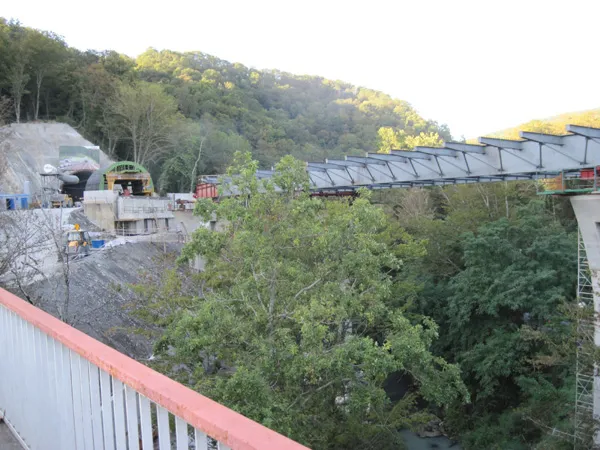The preferred route has been announced for a new road and tunnel link on the A303 route in the UK that will bypass the famous Stonehenge stone circle. The project now finally looks as if it might go ahead after years of debate, although several hurdles have yet to be passed.
The work calls for the construction of a new 13km dual carriageway link and includes a 2.6km stretch of tunnel. The new route will be located further away from Stonehenge and the tunnel is being built so as to minimise disturbance to one of the most important archeological sites in Europe. The tunnel will bypass Stonehenge, as well as Avebury and Associated Sites World Heritage Site (WHS), also providing a much-needed bypass to the north of Winterbourne Stoke. At present the existing route features just one lane in either direction along this stretch of the A303, resulting in severe congestion and long delays. The A303 carries high volumes of tourist traffic as well as a high percentage of heavy trucks and there are concerns over safety.
According to the consultation report over the project, the most significant improvements were a change to the route through the western half of the WHS and to the location of the western tunnel portal. Both of these are now much closer to the line of the existing A303 than they were before the consultation. The preferred route avoids many important archaeological sites, including newly-discovered barrows just to the east of the A360. The modified alignment also avoids any risk of the road intruding on the view of the setting sun from Stonehenge during the winter solstice. As well as easing journeys, lowering congestion and eradicating localised rat-running, the tunnel will improve the setting of Stonehenge by removing the sight and sound of traffic.
If all goes to plan, the aim is to carry out the next round of consultation in early 2018 and construction of the new road could commence in 2021.
The tunnel project has had a long and torturous history, having first been proposed back in 1989. The project went to public consultation in 1993 and the route was identified in 1995, with it then being withdrawn in 1996. In 1998 the project was put forward again and a preferred route announced in 1999 but after a public inquiry in 2004 and concerns over costs in 2005, it was withdrawn once more in 2007. In 2013 the project was then put forward for a third time, with the route being identified in 2015-2016.
A statutory consultation on the proposed scheme will start in early 2018 and if this goes ahead, the planning application will be submitted at the end of 2018, while construction would commence in 2021.
Stonehenge tunnel going ahead?
The preferred route has been announced for a new road and tunnel link on the A303 route in the UK that will bypass the famous Stonehenge stone circle. The project now finally looks as if it might go ahead after years of debate, although several hurdles have yet to be passed.
The work calls for the construction of a new 13km dual carriageway link and includes a 2.6km stretch of tunnel. The new route will be located further away from Stonehenge and the tunnel is being built
September 12, 2017
Read time: 3 mins







